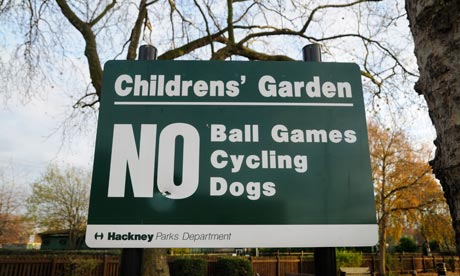 No, we don’t mean war on apostasy, for which many have been hung, drawn, quartered, burned and beheaded. And no, “apostrophes” are not a new sect of fundamentalist terrorists.
No, we don’t mean war on apostasy, for which many have been hung, drawn, quartered, burned and beheaded. And no, “apostrophes” are not a new sect of fundamentalist terrorists.
Apostrophes are punctuation, and a local city council in Britain has deemed to outlaw them. Why?
From the Guardian:
The sometimes vexing question of where and when to add an apostrophe appears to have been solved in one corner of Devon: the local authority is planning to do away with them altogether.
Later this month members of Mid Devon district council’s cabinet will discuss formally banning the pesky little punctuation marks from its (no apostrophe needed) street signs, apparently to avoid “confusion”.
The news of the Tory-controlled council’s (apostrophe required) decision provoked howls of condemnation on Friday from champions of plain English, fans of grammar, and politicians. Even the government felt the need to join the campaign to save the apostrophe.
The Plain English Campaign led the criticism. “It’s nonsense,” said Steve Jenner, spokesperson and radio presenter. “Where’s it going to stop. Are we going to declare war on commas, outlaw full stops?”
Jenner was puzzled over why the council appeared to think it a good idea not to have punctuation on signs. “If it’s to try to make things clearer, it’s not going to work. The whole purpose of punctuation is to make language easier to understand. Is it because someone at the council doesn’t understand how it works?”
Jenner suggested the council was providing a bad example to children who were – hopefully – being taught punctuation at school only to not see it being used correctly on street signs. “It seems a bit hypocritical,” he added.
Sian Harris, lecturer in English literature at Exeter University, said the proposals were likely to lead to greater confusion. She said: “Usually the best way to teach about punctuation is to show practical examples of it – removing [apostrophes] from everyday life would be a terrible shame and make that understanding increasingly difficult. English is a complicated language as it is — removing apostrophes is not going to help with that at all.”
Ben Bradshaw, the former culture secretary and Labour MP for Exeter, condemned the plans on Twitter. He wrote a precisely punctuated tweet: “Tory Mid Devon Council bans the apostrophe to ‘avoid confusion’ … Whole point of proper grammar is to avoid confusion!”
The council’s plans caused a stir 200 miles away in Whitehall, where the Department for Communities and Local Government came out in defence of punctuation. A spokesman said: “Whilst this is ultimately a matter for the local council, ministers’ view is that England’s apostrophes should be cherished.”
To be fair to modest Mid Devon, it is not the only authority to pick on the apostrophe. Birmingham did the same three years ago (the Mail went with the headline The city where apostrophes arent welcome).
The book retailer Waterstones caused a bit of a stir last year when it ditched the mark.
The council’s communications manager, Andrew Lacey, attempted to dampen down the controversy. Lacey said: “Our proposed policy on street naming and numbering covers a whole host of practical issues, many of which are aimed at reducing potential confusion over street names.
“Although there is no national guidance that stops apostrophes being used, for many years the convention we’ve followed here is for new street names not to be given apostrophes.”
He said there were only three official street names in Mid Devon which include them: Beck’s Square and Blundell’s Avenue, both in Tiverton, and St George’s Well in Cullompton. All were named many, many years ago.
“No final decision has yet been made and the proposed policy will be discussed at cabinet,” he said.
Read the entire story after the jump.
Image: Mid Devon District Council’s plan is presumably to avoid errors such as this (from Hackney, London). Courtesy of Guardian / Andy Drysdale / Rex Features.
